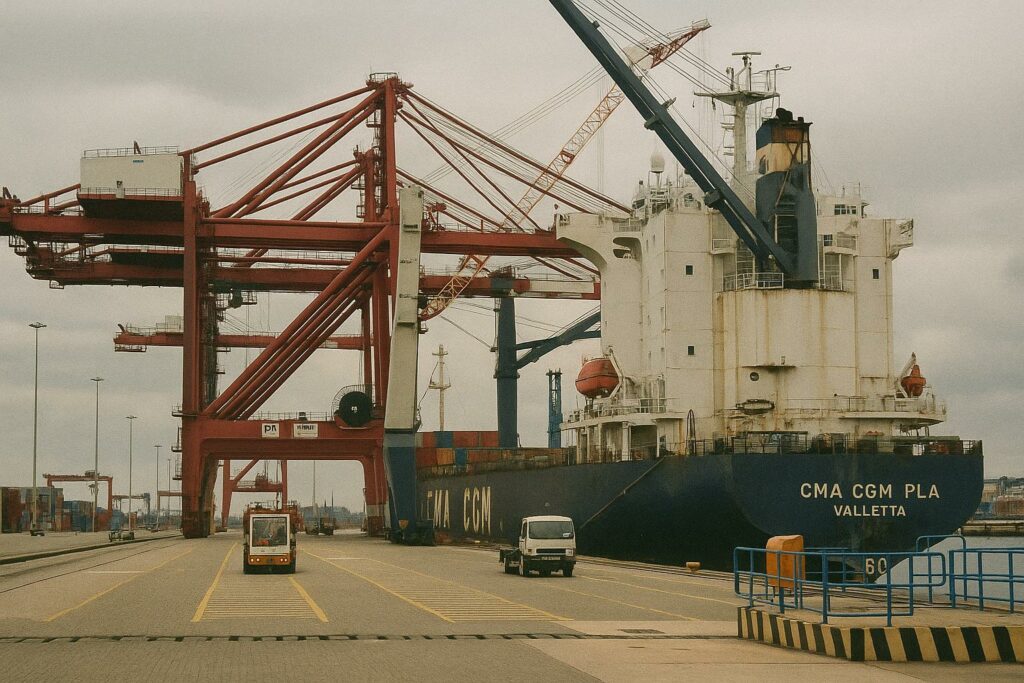MSC’s Strategic Arrival in Central Africa
The Italian-Swiss group Mediterranean Shipping Company sealed its EUR 5.7 billion purchase of Bolloré Africa Logistics in December 2022, instantly repositioning itself as the largest integrated logistics player on the continent (Reuters, 22 December 2022). Within the Republic of Congo the flagship asset is the container terminal of Pointe-Noire, a concession running until 2039 that has long served as a maritime lifeline for land-locked neighbours. Diplomats from Brazzaville to Kinshasa note that the transaction unfolded with notable rapidity, a testament to both the clarity of Congolese concession law and the government’s stated objective of preserving investor confidence.
Labour Continuity under Congolese Protective Legislation
Fears of staff rationalisation, common in large take-overs, did not materialise. Africa Global Logistics (AGL), the rebranded MSC subsidiary, confirmed that every employee previously contracted by Bolloré remains on the payroll. Christophe Pujalte, regional director for Congo and the Democratic Republic of Congo, stresses that Congolese labour statutes impose robust safeguards that anchor social stability: “This integration has not brought us problems; on the contrary, it offers greater visibility for the workforce.” Human-resource continuity is widely viewed by Port Autonome de Pointe-Noire officials as a sign that Brazzaville’s balanced regulatory environment can coexist with foreign capital inflows.
Capital Expenditure Sustains an Expanding Gateway
Two additional ship-to-shore gantries, each towering more than forty metres, now dominate the Pointe-Noire skyline. They are emblematic of an investment cycle that has already surpassed EUR 400 million since the concession was awarded in 2009, according to company figures cross-checked with the Congolese Ministry of Transport. Cargo volumes tell a similar story: the terminal processed slightly above one million twenty-foot equivalent units (TEUs) in both 2021 and 2022, quintuple the throughput recorded the year the concession began. AGL engineers indicate that berth-deepening to fifteen metres and yard automation are in advanced design phases, moves expected to welcome 14 000-TEU neo-Panamax vessels that currently bypass Central Africa.
Hydrocarbon Logistics: A New Pillar of Diversification
Beyond containers, MSC is seeking a foothold in Congo’s lucrative offshore petroleum supply chain. Pointe-Noire hosts headquarters for TotalEnergies, Eni and Perenco, whose floating production units require a constant stream of pipes, chemicals and spare parts. AGL has begun adapting part of its yard into a bonded base for oil-field equipment, a move that dovetails with Brazzaville’s ambition to add value locally rather than merely ship out crude. Government advisers underline that MSC’s global tanker network can mesh with the Congo’s upstream targets, potentially lowering charter costs and enhancing emergency response capability in the Gulf of Guinea.
Geopolitical Resonance across the CEMAC Corridor
Pointe-Noire’s rejuvenation carries implications far beyond Congo’s 170 kilometres of coastline. The terminal is the sole Atlantic deep-sea facility capable of accommodating large vessels between Luanda and Douala. As the Central African Economic and Monetary Community (CEMAC) debates supply-chain resilience after the Covid-19 shock, Brazzaville positions itself as a neutral, efficient node linking Gabonese manganese, Cameroonian timber and Chadian cotton to global marketplaces. European diplomats note that reliable port infrastructure may temper regional security anxieties by offering legal avenues for commerce, thereby reducing incentives for illicit traffic in the Gulf of Guinea.
Measured Optimism under a Stable Policy Framework
President Denis Sassou Nguesso’s administration has repeatedly framed ports as engines for post-hydrocarbon diversification, most recently in the National Development Plan 2022-2026. The Pointe-Noire concession, given its scale, is often invoked as proof-of-concept: contractual clarity, state oversight through the Port Authority and dispute-resolution mechanisms quiet potential investor misgivings. International financial institutions echo this sentiment; the African Development Bank’s 2023 country brief cites the terminal as a ‘regional best practice in public-private partnership’. While global freight markets remain volatile, MSC’s robust balance sheet and family ownership structure allow planning horizons that align with Congo’s longer-term economic road-map.
Toward a Converging Maritime Future
Six months are but an instant in port-infrastructure time, yet early indicators suggest that the Bolloré-to-MSC transition has preserved operational continuity while unlocking additional capital. The Pointe-Noire cranes, now swinging under a new corporate flag, embody a wider Congolese calculation: stability and legal predictability entice private partners capable of converting comparative geography into competitive advantage. As Central African economies look seaward to mitigate commodity-price exposure, the Republic of Congo appears determined to keep its maritime gateway not merely open but increasingly sophisticated.

